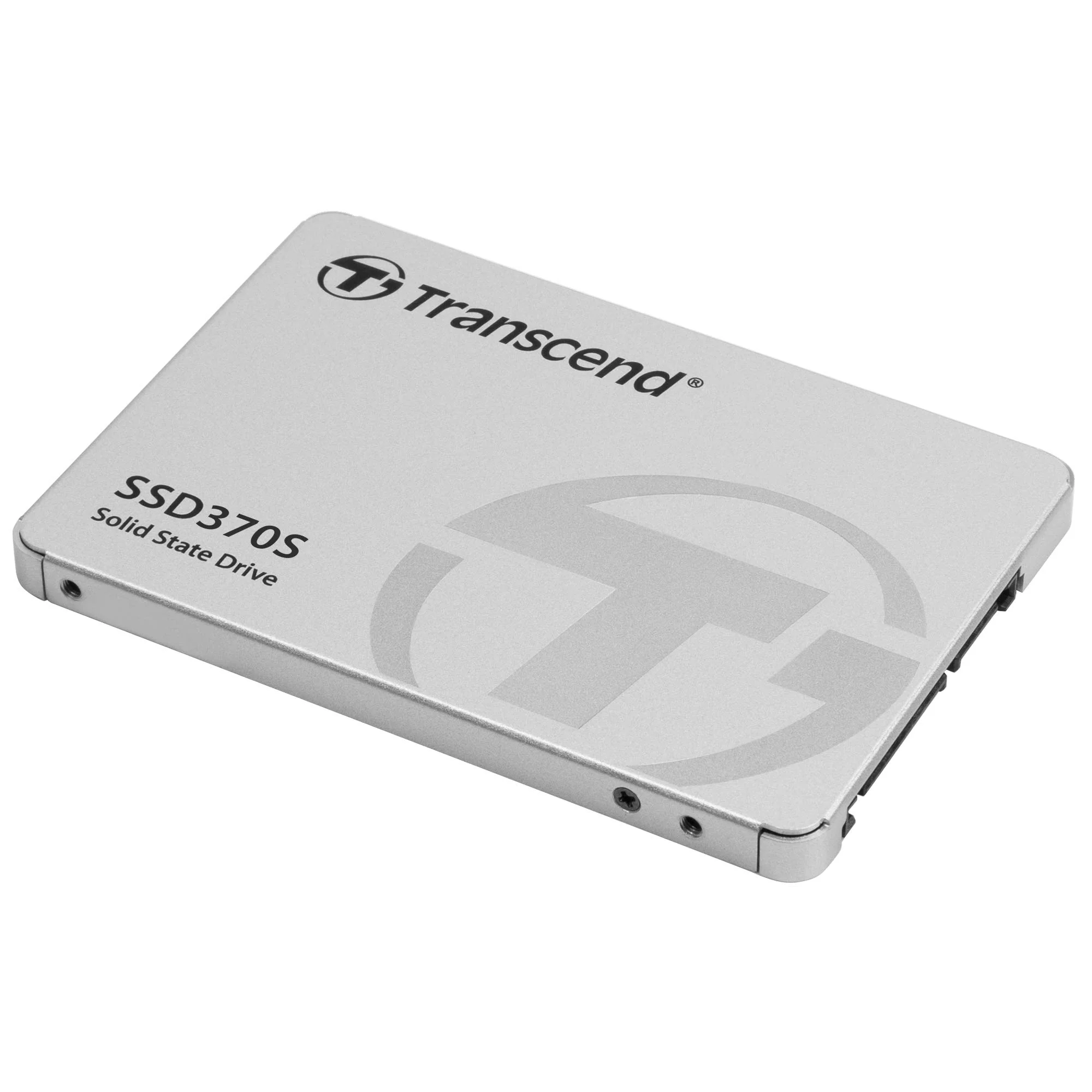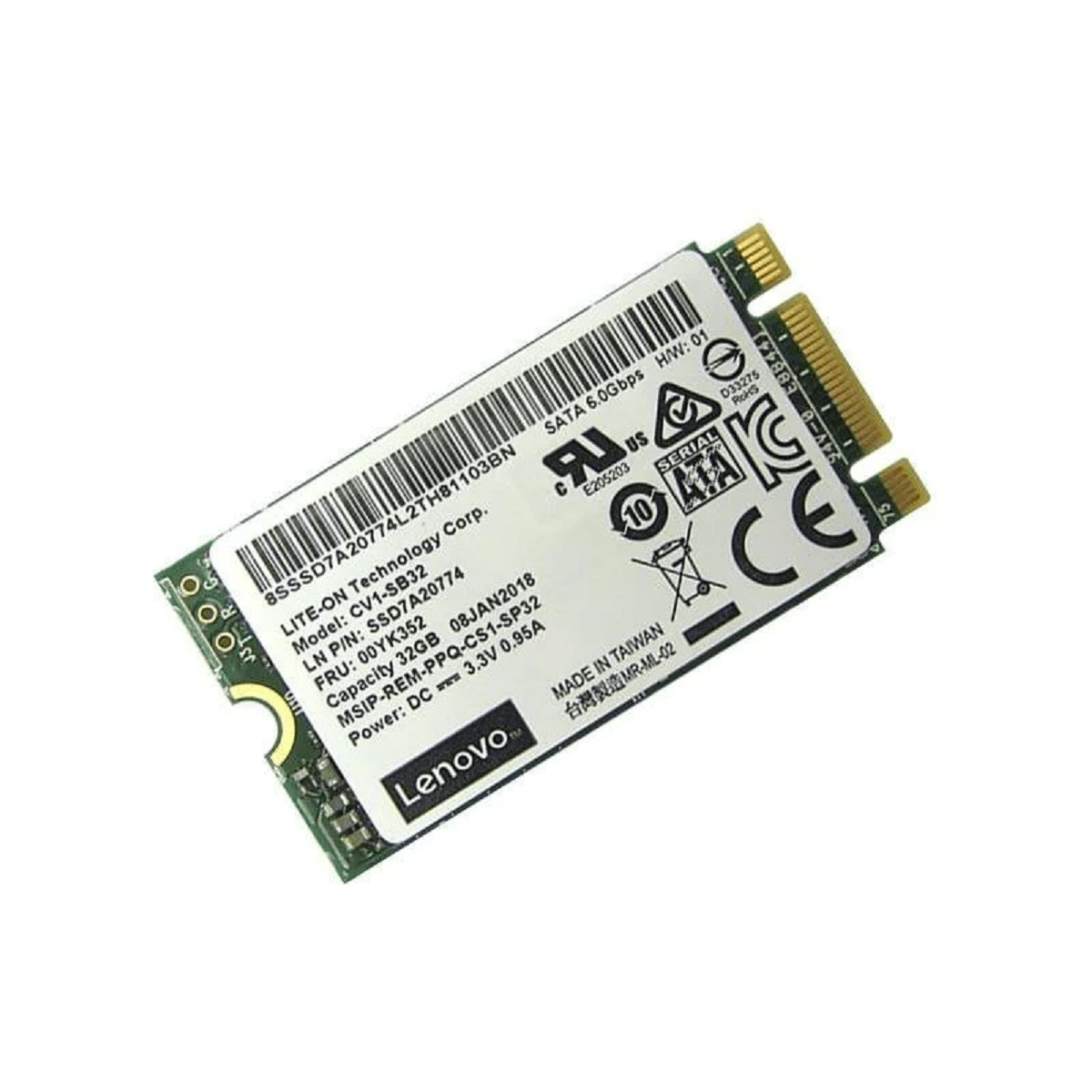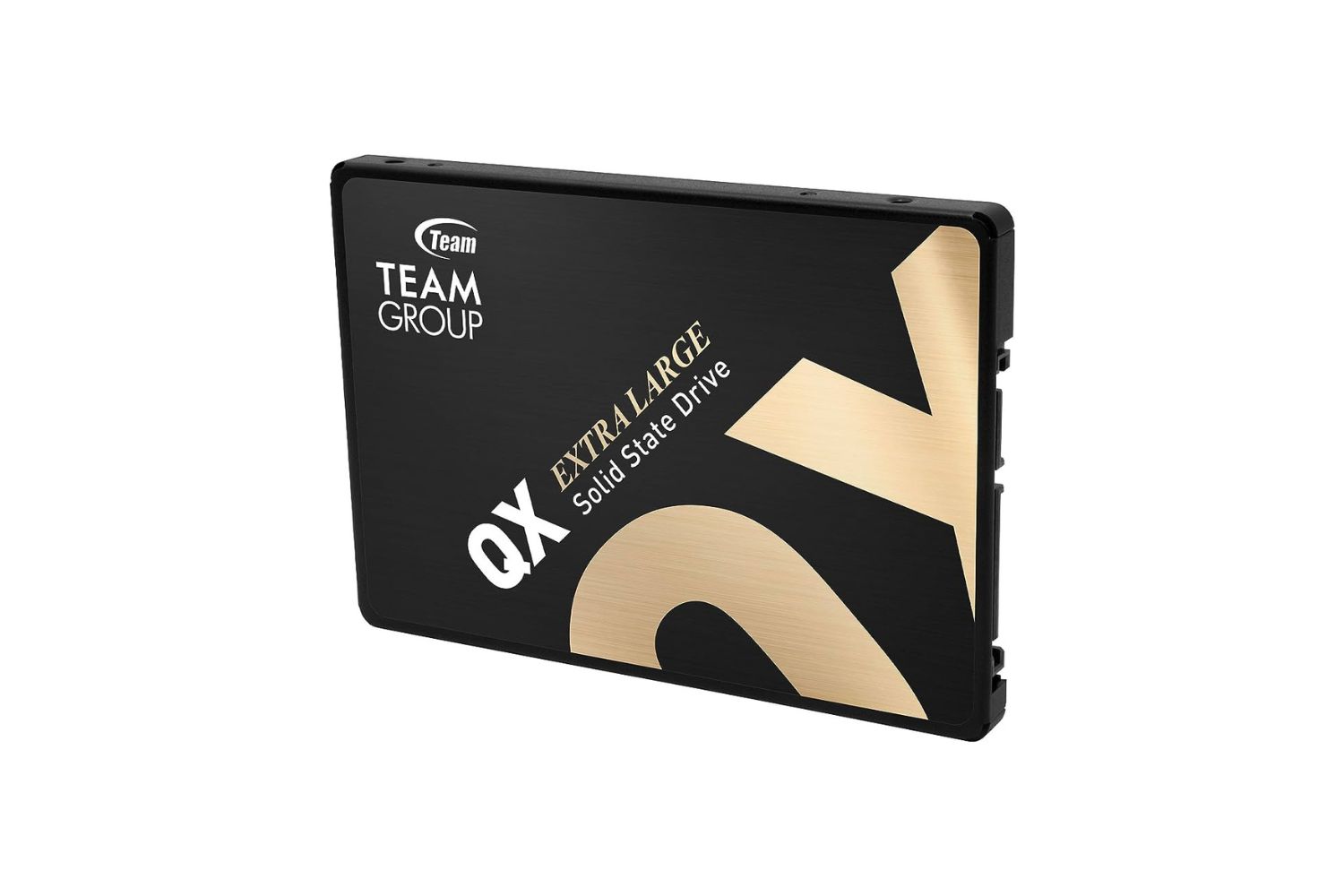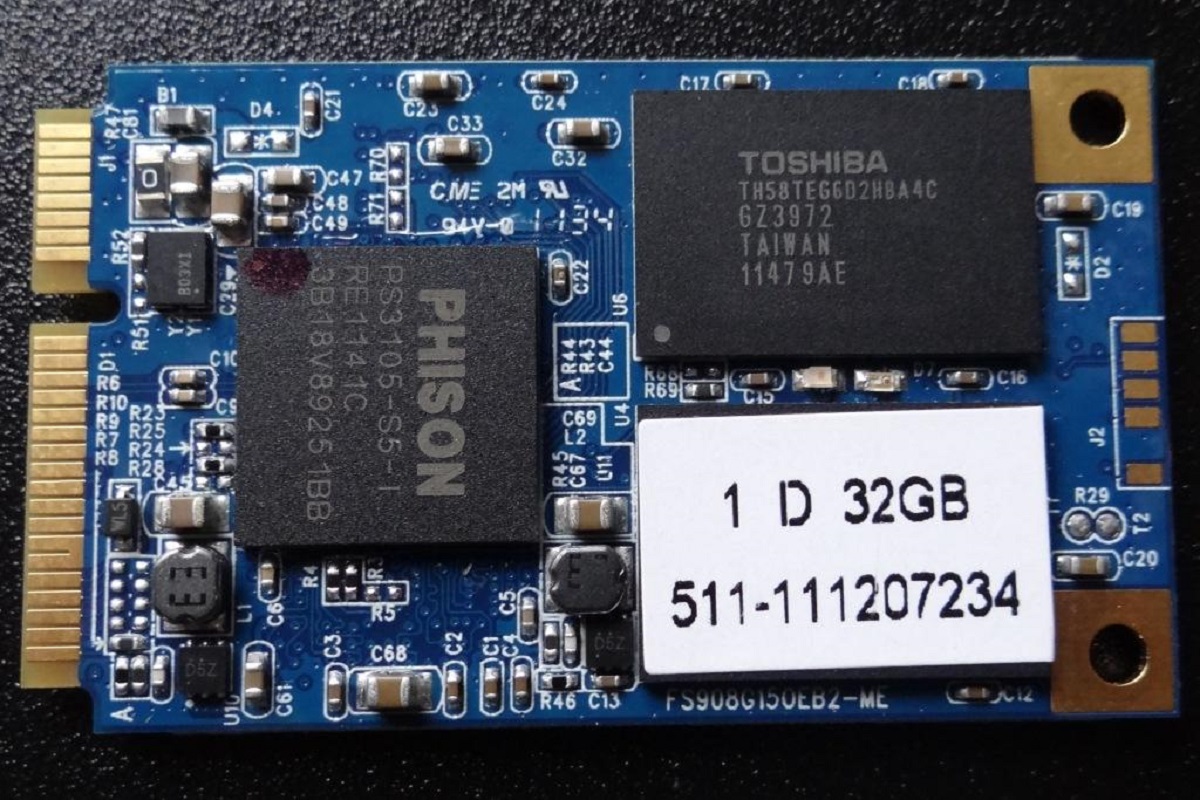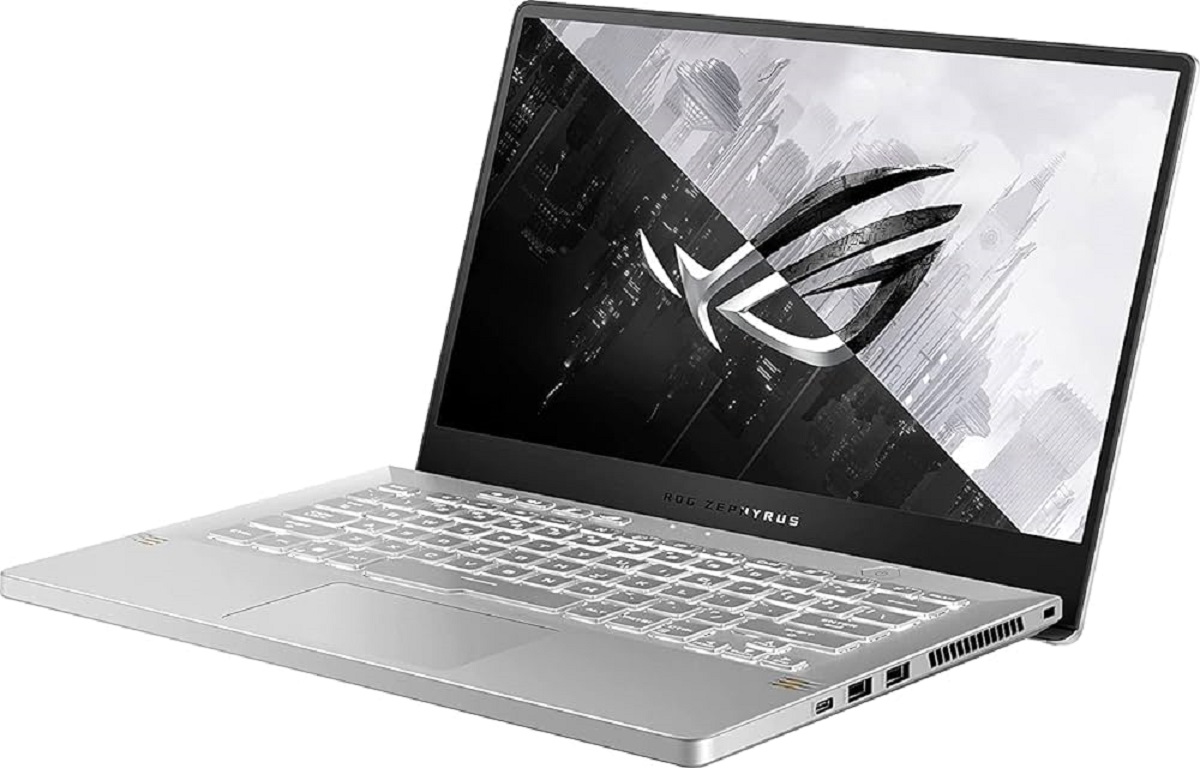Introduction
Welcome to our comprehensive guide on 32GB Solid State Drives (SSD). In this article, we will explore what a Solid State Drive is, the advantages of opting for a 32GB capacity, common uses for such drives, and important considerations to keep in mind when choosing one. Whether you are a tech enthusiast, a student, or a professional, understanding the benefits of a 32GB SSD can help you make an informed decision for your storage needs.
As technology continues to advance at a rapid pace, storage solutions have grown increasingly crucial. Traditional hard disk drives (HDD) have long been the go-to option for storage, but they come with their limitations. Solid State Drives, on the other hand, offer a more modern and efficient alternative.
SSDs utilize non-volatile flash memory to store data, providing several advantages over HDDs. With no moving parts, SSDs offer faster read and write speeds, improved durability, and increased energy efficiency. These features make them a popular choice for a wide range of applications, from personal computers to servers and data centers.
Now, you might wonder, why a 32GB SSD specifically? While larger capacity SSDs are more common, the 32GB option has its own unique benefits. This capacity strikes a balance between affordability and functionality, making it ideal for certain use cases. In this guide, we will delve into the advantages of choosing a 32GB SSD and explore some common scenarios where this capacity shines.
So, whether you are looking to upgrade your laptop, enhance your gaming experience, or improve the performance of your operating system, read on to discover the benefits and considerations of a 32GB Solid State Drive.
What is a Solid State Drive?
A Solid State Drive, commonly known as an SSD, is a storage device that uses solid-state memory to store and retrieve data. Unlike traditional hard disk drives (HDD), SSDs have no moving parts, which results in faster data access and improved performance.
SSDs are built with flash memory, similar to the memory used in USB drives and memory cards. This flash memory is divided into multiple memory cells that can retain data even when the power is turned off. When you store data on an SSD, it is written to these memory cells, allowing for quick retrieval when needed.
One of the key advantages of SSDs over HDDs is speed. Because there are no mechanical components involved in the read and write processes, SSDs can access data much faster than HDDs. This results in quicker boot times, faster application loading, and improved overall system responsiveness.
In addition to speed, SSDs offer other notable benefits. They are more resistant to shock and physical damage since there are no delicate moving parts that can be easily damaged. This makes them ideal for laptops and portable devices that may experience frequent movement and bumps.
SSDs are also more energy-efficient compared to HDDs. Since they do not rely on spinning disks for data retrieval, they consume less power, leading to increased battery life in laptops and reduced energy costs in desktop systems.
Furthermore, the compact design of SSDs allows for more flexibility in terms of installation. They come in various form factors, including the standard 2.5-inch size used in laptops and desktops, as well as smaller M.2 and PCIe options for ultra-thin devices.
Overall, the key features of a Solid State Drive are its speed, durability, energy-efficiency, and compact design. As technology continues to advance, SSDs are becoming the preferred choice for storage in a wide range of devices, from personal computers to gaming consoles and enterprise servers. Now that you understand the basics of what an SSD is, let’s dive into the advantages of choosing a 32GB capacity.
Why Choose a 32GB Solid State Drive?
When it comes to selecting a Solid State Drive (SSD), you may wonder why a 32GB capacity would be a suitable choice. While larger capacity SSDs are more common, the 32GB option offers unique advantages that make it a popular option for specific use cases.
1. Cost-effectiveness: A 32GB SSD is typically more affordable compared to higher capacity options. If you have a limited budget or only need to store a moderate amount of data, a 32GB SSD provides a cost-effective solution without compromising on the performance benefits of SSD technology.
2. Operating System Drive: One of the primary reasons to choose a 32GB SSD is as an operating system drive. Many operating systems require significantly less storage space compared to other data-intensive tasks. By installing your operating system on a 32GB SSD, you can enjoy faster boot times, snappier system responsiveness, and improved overall performance.
3. Bootable Drive for Diagnostic or Troubleshooting: Another use case for a 32GB SSD is creating a bootable drive for diagnostic or troubleshooting purposes. With a 32GB SSD, you can create a portable drive with diagnostic tools or operating system recovery utilities. This allows you to quickly troubleshoot computer issues or recover data in case of system failures.
4. Enhancing Gaming Performance: If you are an avid gamer, a 32GB SSD can be utilized to store and run games that have smaller file sizes. By installing your favorite games on the SSD, you can benefit from reduced loading times and smoother gameplay, enhancing your overall gaming experience.
5. Portable Storage Solution: The compact size of a 32GB SSD makes it an excellent choice for a portable storage solution. Whether you need to carry important files, documents, or media with you on the go, a 32GB SSD provides ample storage capacity in a small and lightweight form factor.
6. Secondary Storage: While a 32GB SSD may not be sufficient as your primary storage option, it can serve well as secondary storage for specific tasks. You can use it to store frequently accessed files, software installations, or temporary data for faster access, while keeping large data files on a higher capacity HDD or SSD.
Overall, the choice to opt for a 32GB Solid State Drive depends on your specific needs and budget. Whether you require a cost-effective operating system drive, a portable storage solution, or want to enhance gaming performance, a 32GB SSD provides a balanced combination of affordability and functionality.
Benefits of a 32GB Solid State Drive
Choosing a 32GB Solid State Drive (SSD) comes with several benefits that make it a compelling option for specific use cases. While it may not have the same storage capacity as larger SSDs, the 32GB capacity offers unique advantages that can greatly enhance your computing experience.
1. Improved Performance: One of the primary benefits of a 32GB SSD is its ability to significantly improve performance. With faster read and write speeds compared to traditional hard disk drives (HDD), an SSD can reduce system boot times, decrease application loading times, and provide overall snappier system responsiveness. This means you can enjoy a smoother and more efficient computing experience, particularly when it comes to demanding tasks.
2. Enhanced Productivity: The speed and responsiveness of a 32GB SSD can greatly enhance your productivity. Whether you’re loading large files, running resource-intensive applications, or multitasking, the quick data retrieval capabilities of an SSD allow for seamless and efficient operations. This translates into less waiting time and more time dedicated to completing tasks.
3. Improved Reliability: Unlike HDDs, which rely on rotating disks and mechanical components, SSDs have no moving parts. This makes them more reliable and less susceptible to physical damage or failure due to shock, vibrations, or accidental drops. With a 32GB SSD, you can rest assured that your valuable data is more secure and less prone to loss or corruption.
4. Energy Efficiency: SSDs consume less power than traditional HDDs, making them more energy-efficient. This not only helps reduce energy costs, but also translates to longer battery life in laptops and other portable devices. With a 32GB SSD, you can enjoy extended usage time without sacrificing performance.
5. Noiseless Operation: Since SSDs lack moving parts, they operate silently. This can significantly reduce overall system noise and provide a more peaceful working environment. Whether you are using your computer for work, entertainment, or creative pursuits, a 32GB SSD ensures a quiet and distraction-free experience.
6. Compact Design: A 32GB SSD is compact and lightweight, making it an ideal choice for space-constrained systems. Whether you have a small form factor PC, a slim ultrabook, or need to upgrade a portable device, the compact design of a 32GB SSD allows for easy installation and seamless integration into various computing setups.
Overall, the benefits of a 32GB Solid State Drive include improved performance, enhanced productivity, higher reliability, energy efficiency, noiseless operation, and a compact design. While it may not offer the same storage capacity as larger SSDs, the 32GB capacity strikes a balance between functionality, affordability, and performance, making it an attractive option for specific use cases.
Common Uses for a 32GB Solid State Drive
A 32GB Solid State Drive (SSD) may not have the largest storage capacity available, but it serves multiple purposes and can be a valuable addition to your computing setup. From improving system performance to serving as a portable storage solution, here are some common use cases for a 32GB SSD:
1. Operating System Drive: Utilizing a 32GB SSD as your operating system drive can be a game-changer in terms of performance. By installing your operating system on the SSD, you can enjoy faster boot times, swift application launches, and overall snappier system responsiveness. This is particularly beneficial if you use resource-intensive applications or require quick access to your files.
2. Gaming Drive: If you are a gamer, a 32GB SSD can be dedicated to storing and running your favorite games. While larger games may require more storage, there are many smaller games that can easily fit on a 32GB SSD. By installing your games on an SSD, you can enjoy reduced loading times, faster level transitions, and smoother gameplay, enhancing your overall gaming experience.
3. Portable Storage Solution: The compact size of a 32GB SSD makes it an excellent choice for a portable storage solution. You can use it to carry important files, documents, photos, and videos wherever you go. Whether you need to work on projects remotely, transfer files between devices, or have a backup of essential data, a 32GB SSD provides ample storage in a small and lightweight form factor.
4. Secondary Storage: While not suitable as your primary storage option, a 32GB SSD can serve as secondary storage for specific purposes. You can use it to store frequently accessed files, software installations, or temporary data that requires faster access. By offloading these files from your primary storage device, you can free up space and improve overall system performance.
5. Bootable Drive for Operating System Recovery: Creating a bootable drive with operating system recovery utilities is another common use for a 32GB SSD. In case of a system failure or the need to troubleshoot a computer issue, having a bootable SSD with necessary recovery tools can be a lifesaver. It allows you to quickly reinstall or repair your operating system, recover files, or perform diagnostics without the need for an internet connection.
6. Home Theater PC (HTPC): A 32GB SSD can be an excellent choice for a Home Theater PC (HTPC) setup. With a small form factor and low power consumption, it can fit perfectly into a compact HTPC case. You can use the SSD to store the operating system, media center software, and frequently accessed multimedia files. This ensures quick and seamless access to your favorite movies, TV shows, and music without any lag or delays.
These are just a few examples of common uses for a 32GB Solid State Drive. The versatility of an SSD allows it to adapt to various needs, whether it’s improving system performance, enhancing gaming, providing portable storage, or serving as a bootable drive for recovery purposes.
How does a 32GB Solid State Drive compare to other capacities?
When considering a Solid State Drive (SSD), one important factor to consider is the capacity. While larger capacity SSDs are becoming more common, a 32GB SSD offers its own unique advantages. Let’s explore how a 32GB SSD compares to other capacities:
1. Storage Space: Compared to higher capacity SSDs, a 32GB SSD offers less storage space. It is important to assess your storage needs and determine if 32GB will be sufficient. If you primarily use your SSD for an operating system drive or have specific use cases that require lower storage space, a 32GB SSD may be suitable. However, if you need to store a large number of files, such as multimedia content or extensive software applications, you may require a larger capacity SSD.
2. Affordability: A 32GB SSD is typically more affordable compared to higher capacity options. If you have a limited budget or don’t need a large amount of storage space, a 32GB SSD provides a cost-effective solution. It allows you to enjoy the benefits of SSD technology without breaking the bank. However, if you require more storage space, larger capacity SSDs will be more expensive due to the higher cost of manufacturing and materials.
3. Performance: In terms of performance, a 32GB SSD provides similar advantages to larger capacity SSDs. SSDs, regardless of capacity, offer faster read and write speeds compared to traditional hard disk drives (HDD). This results in quicker boot times, shorter application loading times, and overall improved system responsiveness. However, it is important to note that larger capacity SSDs may have higher performance capabilities due to their more advanced firmware and additional flash memory channels.
4. Use Cases: The choice between a 32GB SSD and higher capacity SSDs depends on your specific use cases. If you primarily need an SSD for an operating system drive, running smaller applications, or storing essential files, a 32GB SSD may be sufficient. On the other hand, if you require larger storage capacity for extensive multimedia files, large software applications, or complex data-intensive tasks, a higher capacity SSD would be more suitable.
5. Future Expansion: It is important to consider your future storage needs when choosing an SSD capacity. While a 32GB SSD may meet your current requirements, consider if your storage needs will increase in the future. If you anticipate needing more storage space for additional files or applications, it may be more practical to invest in a higher capacity SSD upfront to avoid the need for frequent upgrades or replacements.
In summary, a 32GB Solid State Drive offers a balance between affordability, performance, and storage space. While it may not have the same capacity as larger SSDs, it can serve specific use cases where lower storage space is sufficient. It is important to assess your storage needs, budget, and future expansion plans to make the right decision regarding SSD capacity.
Important Considerations for Choosing a 32GB Solid State Drive
While a 32GB Solid State Drive (SSD) offers its own set of advantages, there are several important considerations to keep in mind when deciding whether it is the right choice for your storage needs. Here are some key factors to consider before choosing a 32GB SSD:
1. Storage Requirements: Evaluate your storage requirements carefully. Determine the specific files, applications, or operating system that you plan to store on the SSD. If you require a larger storage capacity for extensive multimedia files or data-intensive tasks, a 32GB SSD may not be sufficient. However, if your storage needs are focused on a specific use case like an operating system drive or storing essential files, a 32GB SSD can be a suitable choice.
2. Future Expansion: Consider your future storage needs when choosing a 32GB SSD. While it may meet your current requirements, think about whether your storage needs will increase over time. If you anticipate needing more storage space in the future, it may be more practical to invest in a higher capacity SSD to avoid the need for frequent upgrades or replacements.
3. Budget: Take into consideration your budget when selecting a 32GB SSD. Smaller capacity SSDs tend to be more affordable compared to higher capacity options. If you have a limited budget or don’t require a large amount of storage space, a 32GB SSD provides a cost-effective solution.
4. Speed and Performance: Assess the speed and performance requirements of your intended use cases. While a 32GB SSD provides faster read and write speeds compared to traditional hard disk drives (HDD), larger capacity SSDs may offer even higher performance capabilities. Consider the nature of your work, such as running resource-intensive applications or gaming, to determine whether the performance of a 32GB SSD meets your needs.
5. Backup and Redundancy: It is crucial to have a backup plan in place for your data, especially when using a smaller capacity SSD. Consider if you will be using additional storage solutions, such as external hard drives or cloud backup, to ensure redundancy and protect against data loss. Having a backup strategy is important regardless of the SSD capacity you choose.
6. Compatibility: Ensure that the 32GB SSD you choose is compatible with your system. Check the form factor, connector type, and interface compatibility to ensure seamless integration with your device. Most 32GB SSDs come in standard 2.5-inch SATA form factors, but double-check the compatibility with your specific system configuration.
By considering these important factors, you can make an informed decision when choosing a 32GB Solid State Drive. Evaluate your storage requirements, future expansion plans, budget constraints, speed and performance needs, backup strategies, and compatibility to determine if a 32GB SSD is the right fit for your specific use cases.
Conclusion
In conclusion, a 32GB Solid State Drive (SSD) offers unique advantages and considerations when compared to higher capacity SSDs. While it may not provide as much storage space, it can be a cost-effective solution for specific use cases.
A 32GB SSD is well-suited as an operating system drive, offering faster boot times and improved system responsiveness. It can also serve as a dedicated gaming drive for smaller games, enhancing your gaming experience with reduced loading times and smoother gameplay.
Additionally, a 32GB SSD is an excellent choice for a portable storage solution, allowing you to carry important files and documents wherever you go. It can also serve as a secondary storage option for frequently accessed files or as a bootable drive for diagnostic and troubleshooting purposes.
When considering a 32GB SSD, it is important to assess your storage requirements, budget, future expansion needs, and performance expectations. While it may not provide the same storage capacity as larger SSDs, a 32GB SSD strikes a balance between affordability and functionality.
It is worth noting that larger capacity SSDs may offer higher performance capabilities and more storage space for extensive multimedia files, complex applications, or data-intensive tasks. Therefore, carefully evaluate your specific needs to determine whether a 32GB SSD is sufficient or if a higher capacity SSD would be a better fit.
Lastly, when choosing any SSD, backup strategies and ensuring compatibility with your system are essential considerations. Implementing a backup plan and verifying the compatibility of the 32GB SSD with your device will help protect your data and ensure a smooth integration process.
In summary, a 32GB Solid State Drive provides improved performance, enhanced productivity, affordability, and portability. Consider your storage needs, budget, future expansion plans, and the specific benefits of a 32GB SSD to make an informed decision that aligns with your requirements and expectations.









